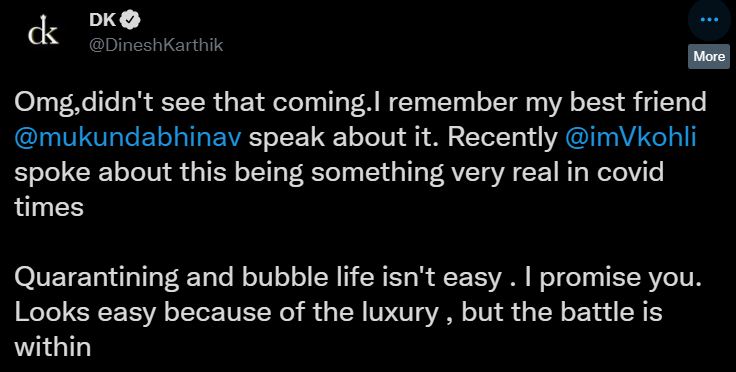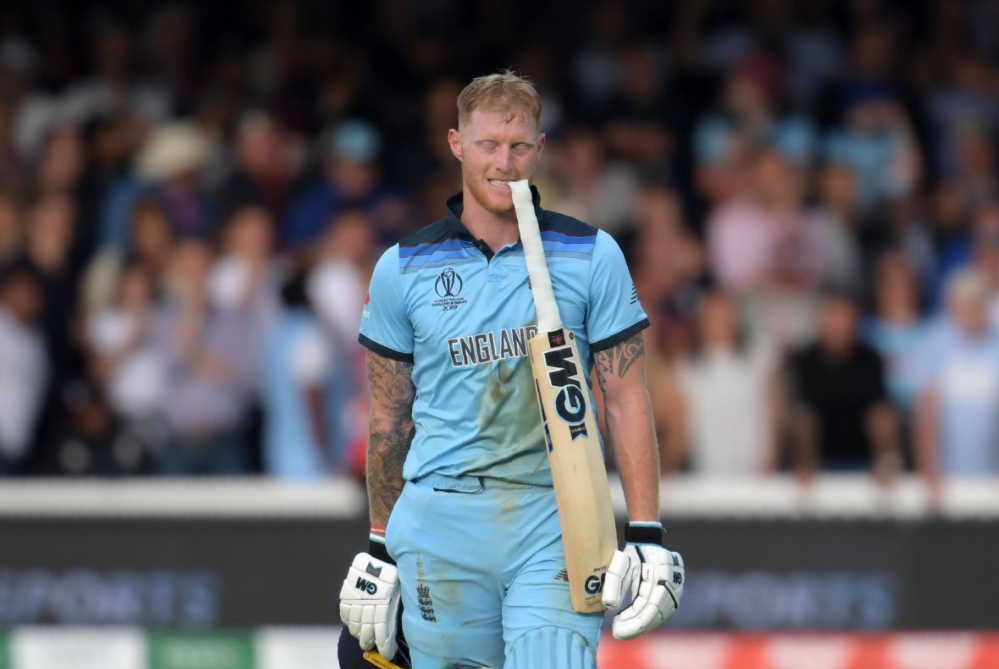English cricket player Ben Stokes has opened up about his battle with mental health issues. In July 2021, the prolific player took an indefinite break from cricket to prioritize his mental health and rest his broken index finger. The 30-year-old was applauded for his bravery in opening up about his feelings and well-being.
In 2019, Virat Kohli, India’s iconic cricket captain, revealed that he has dealt with mental health issues. “I have gone through a phase in my career where it was the end of the world. I just didn’t know what to do, what to say to anyone, how to speak, how to communicate,” said the 33-year-old at a press conference back in 2014. Kohli is often credited for changing the mindset of India’s cricket towards their mental health and developing a more resilient mentality in general.

Like any other sport played internationally, cricket demands a certain level of commitment and sacrifice for athletes to succeed. We’ve seen how cricket athletes were pushed into the spotlight for their sporting achievements and have faced severe criticism from commentators, fans, and more. Cricket isn’t just a sport; it’s a source of national pride for some countries.
Throughout the years, cricket athletes from all over the world, such as Jonathan Trott, Andrew Flintoff, and Sarah Taylor, have retired from the game emphasizing the need to focus on their overall well-being.
With the 2022 cricket season underway, it’s necessary once again to acknowledge how vital prioritizing mental health in professional cricket truly is.
A study from The BMJ, published by the British Medical Association, found that cricketers are at high risk for distress, anxiety, and depression. The study also suggested that cricketers are at risk of adverse alcohol use and that suicide rates were proposed to be higher for test cricketers in particular.
The same study also highlighted that there’d been a lack of mental health services for athletes within the sport.
READ: SA Captain Quinton de Kock to Take Mental-Health Break From Cricket
The importance of mental training
Social media is an essential tool for celebrated athletes to engage with their fans and share personal stories. Unfortunately, it’s often misused and can also serve as a way for naysayers, critics, and malicious individuals to bully certain athletes with hurtful comments. ExpressVPN’s study on Gen Zers and their fixation with social media have revealed that 86% of respondents feel that social media directly impacts their happiness. If you take into consideration the number of young cricketers in the top leagues around the world, the noise from social media can often be unavoidable.
Like Instagram and Facebook, most social media platforms rely on users to report potentially damaging comments to moderate their platforms better. While this is great, these social media platforms usually take a while to verify that these comments are indeed damaging and hurtful. It’s likely that by the time the disparaging comment gets removed, the subject being talked about would have already seen or heard it. Frequently, this can lead to painful situations for athletes, especially ones that did not perform particularly well during a season.
Physical training is often lauded as an essential part of athlete life. However, what’s even more critical, yet often overlooked is mental training. While physical fitness is crucial for success, mental wellness helps motivate and prepare athletes to focus and nurture a sense of self-belief so that they’ll improve their performance during games. This is especially important when national teams compete internationally for long periods of time. Being away from their families and lethargy can often push athletes over the edge.
READ: Tim Paine Takes Indefinite Mental Health Break from Cricket
What exactly is mental training?
Researchers have found that there are four types of mental training that athletes can do to get better at their sport. These mental training techniques are goal setting, relaxation, imagery, and self-talk.
In goal-setting, athletes discuss their aspirations with a coach or expert and strategize how to reach specific goals. For example, if an athlete is looking to improve the number of goals they’d like to score, they could first start small by improving the percentage of goals scored by 3% in a particular game. These small but achievable steps help make it easier for athletes to believe in themselves and their abilities. Eventually, they’ll be able to attain specific achievements.
As its name suggests, relaxation focuses on helping athletes reduce anxiety and manage stress levels better. Athletes can engage in better breathing techniques, listen to music, and do more advanced things like progressive muscular relaxation to help reduce tension in their bodies.
Athletes will practice envisioning their success and thinking positively through imagery and self-talk. These activities are usually done with the help of an experienced life coach or expert who can help these athletes form healthier mental habits. This is especially helpful when the athlete in question faces some sort of setback while in the game.
How can teams prioritize mental health in cricket?
Besides opening up about his mental health struggles, Kohli also mentioned that he found it difficult to open up about his difficulties. “I could have said that I am not feeling great mentally and need to get away from the game. But you never know how that’s taken,” he shared in the same press conference.
As mentioned above, it has been found that there’s been a lack of health services provided for athletes within cricket. To help this, international cricket organizations could consider highlighting the importance of taking breaks and giving recognition to athletes who have taken hiatuses to focus on their mental health. By acknowledging these athletes, organizations can help normalize prioritizing mental health over any type of athletic recognition.
In an interview with Sport360, Professor Nick Peirce, chief medical officer for the England and Wales Cricket Board, shared that he’s seen a reduction in the stigma surrounding mental health. He’s also mentioned that the Cricket Performance Academy now requires clinical psychology mentoring. The Professional Cricketers’ Association offers a wide variety of proactive mental health programs in England and Wales. Such initiatives can encourage athletes to talk more openly about any mental health issues they might face.

Alternatively, coaches and team leads could prioritize mental health at the forefront of their training strategy. For starters, coaches can do check-ins with their athletes to find out how they’re feeling and nip any potential issues in the bud as soon as they arise.
The future of mental health and cricket
In summation, there’s hope for athletes in cricket. Beyond cricket, athletes like American gymnast Simone Biles and Japanese tennis player Naomi Osaka have opened up about their struggles with mental health. With more and more influential sporting figures coming forward to talk about their problems, mental health stigma could reduce. Overall, the sporting industry could do a lot better at listening and understanding the struggles these athletes face.

